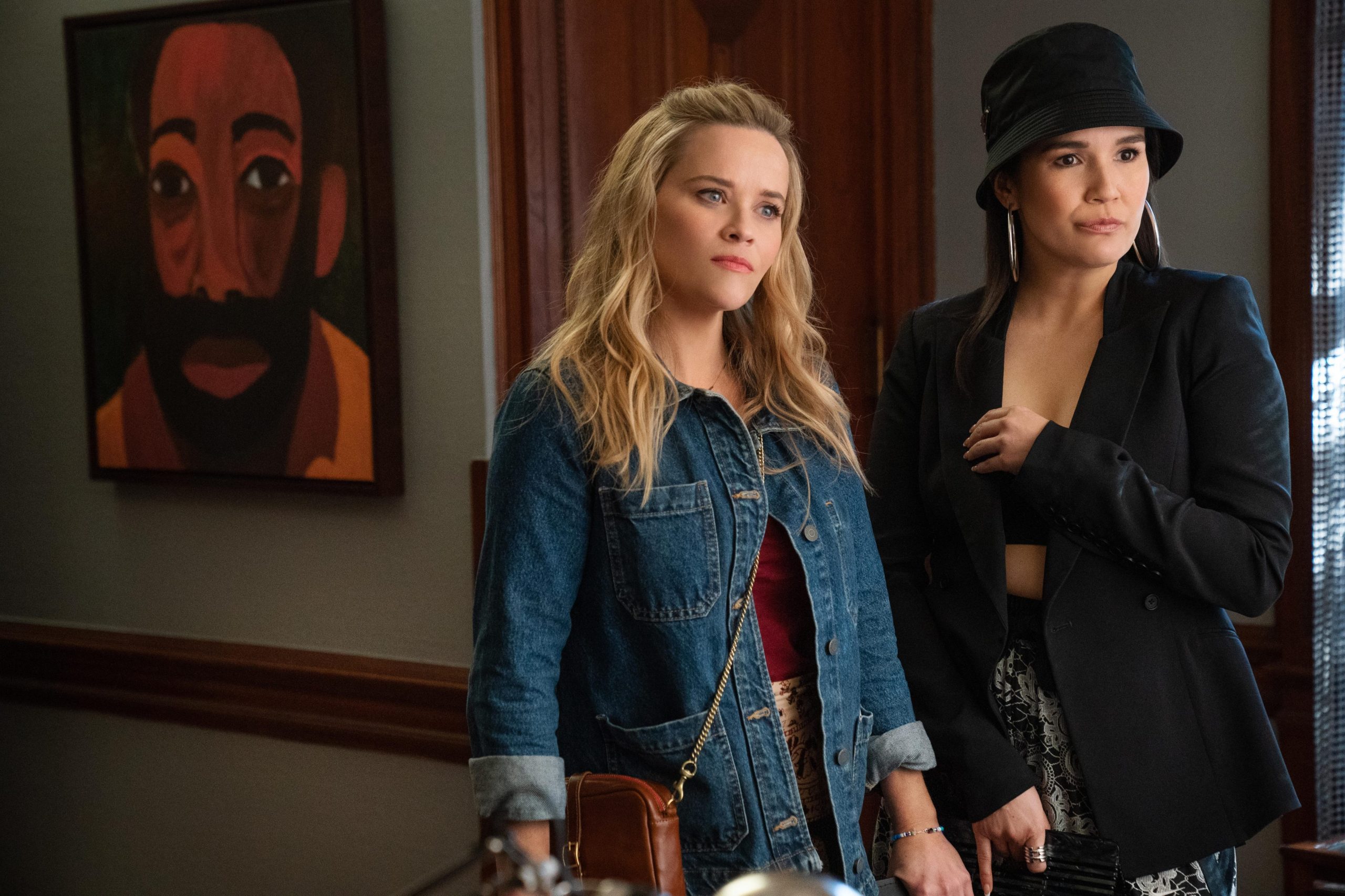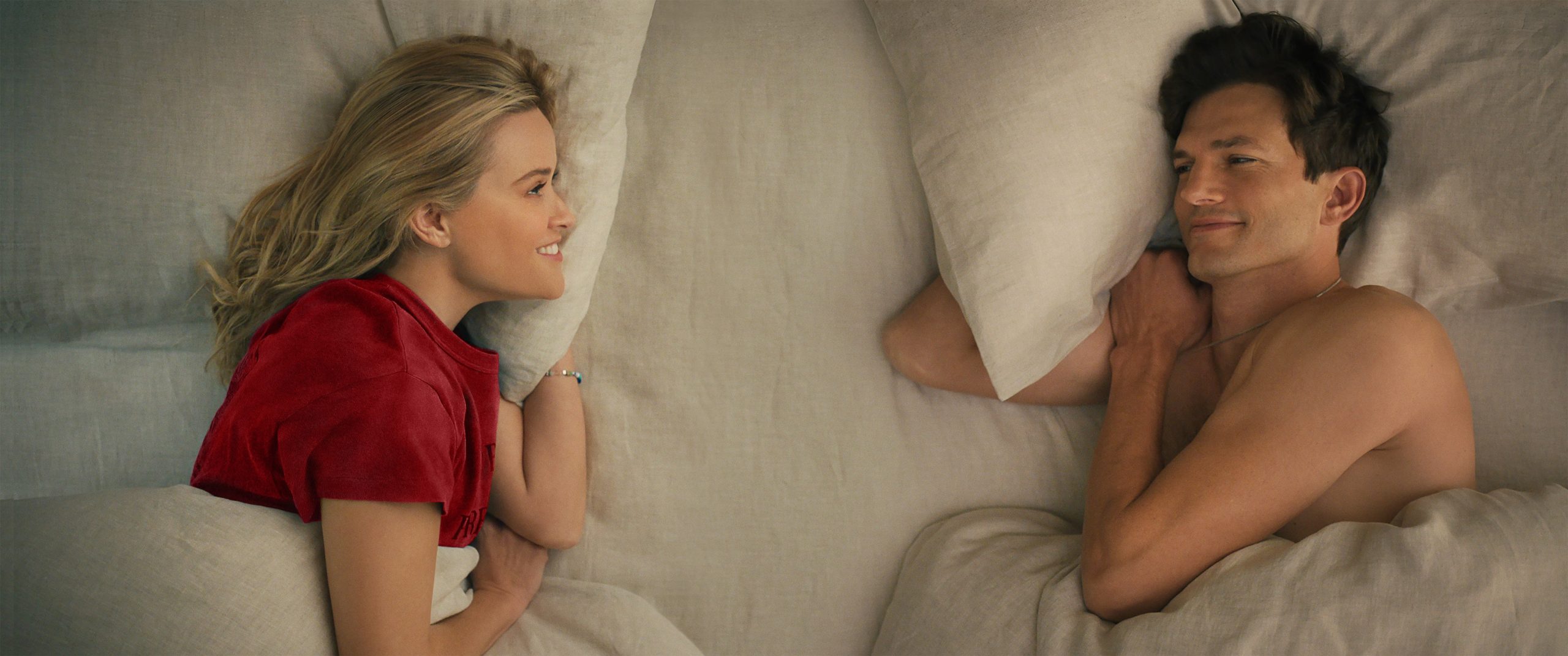★★☆☆☆
Your Place or Mine is a straight-to-Netflix romantic comedy that reunites two likeable performers, Ashton Kutcher and Reese Witherspoon. I’m playing fast and loose with the word ‘reunite’ here because Kutcher and Witherspoon aren’t in the same room together for most of the movie.
Director and writer Aline Brosh McKenna (The Devil Wears Prada, 27 Dresses, Crazy Ex-Girlfriend) orchestrates lacklustre performances that could’ve been stronger if it weren’t for Your Place or Mine’s unforgivably weak storyline. I’m not entirely critical of Kutcher and Witherspoon, who, for all their efforts, are forced to mould into characters that clearly lack depth.
On paper, the film had the potential to be a charming and enjoyable romantic comedy, like No Strings Attached and Friends with Benefits (starring Kutcher’s wife, Mila Kunis). Unfortunately, it falls short because of the impossibility of creating natural chemistry between two characters performing on a split-screen and chatting to each other over the phone for most of the story.

Kutcher plays Peter, and Witherspoon is Debbie, two former flings who have become inseparable best friends. They talk almost every day and seem destined to fall in love, but before they can, they must first embark on a soul-searching journey. Peter and Debbie agree to swap houses for two weeks, with Peter taking care of Debbie’s son, Jack, in Los Angeles while she attends a writing course in New York City. Why Debbie is attending the course on the other side of the country is never explained. Logistics clearly weren’t high up on McKenna’s list when she sat down to write.
Peter, a wealthy former alcoholic, tries to connect with Jack by doing things like playing hockey and watching Alien, but his attempts to make Jack seem cool at school backfire. Meanwhile, Debbie struggles to balance her writing course and her life as a single mother. Despite the presence of supportive players like Zoë Chao, Tig Notaro, and Steve Zahn, who manage to bring some laughs, the film falters too many times to be considered a standout romcom.
As the movie progresses, each character meets a wing woman in their respective cities. Peter befriends a school worker and friend of Debbie’s in LA, while Debbie herself meets one of Peter’s former hookups, Minka (Zoë Chao), in New York, a rather unpleasant figure with almost no endearing qualities. All of this leads to the discovery of a novel manuscript that Peter wrote about his relationship with his long-deceased father.
The film’s USP and its chief stumbling block is the lack of screen time between Kutcher and Witherspoon. They are barely in the same room together, and when they are, they are often separated by FaceTime chats and split-screens. This experimentation is foreshadowed by a bizarre opening scene set in 2003, where we’re privy to Peter and Debbie’s first and only one-night stand. Because we’re too stupid to pick up the contextual clues, giant white arrows and text overlay the screen, pointing out Debbie’s Wonderbra and Peter’s wallet chain.

There are also several loose plot threads that make for an overall confusing storyline. New York looks impossibly clean and civilised, which prompted me to check how big the film’s budget must have been. Despite being unable to find that information, I could conclude that it was probably modest, with entire sequences set in NYC filmed on a backlot with a green screen. Many of the love triangles, such as Debbie’s and her gardener (Steve Zahn) and Peter’s superficial hook-up interest Minka, are introduced as quickly as they’re forgotten and never spoken of again.
The film’s lack of effort to showcase the chemistry between Kutcher and Witherspoon is a major disappointment, especially considering their previous separate successes in similar films. Witherspoon cannot bed herself into this role because she’s no longer a neurotic single mother before she’s instantly transformed into an aspiring literary student. Meanwhile, Kutcher never gets the chance to peacock the trademark cheekiness we all enjoyed in Cheaper By The Dozen. Your Place or Mine instead relies on a convoluted and forgettable plot and split-screen gimmicks, recruiting the supporting players to do their best to bring some humour.
McKenna’s movie lacks charm and screen time between the two leads, ultimately rendering their suggested romance artificial.





